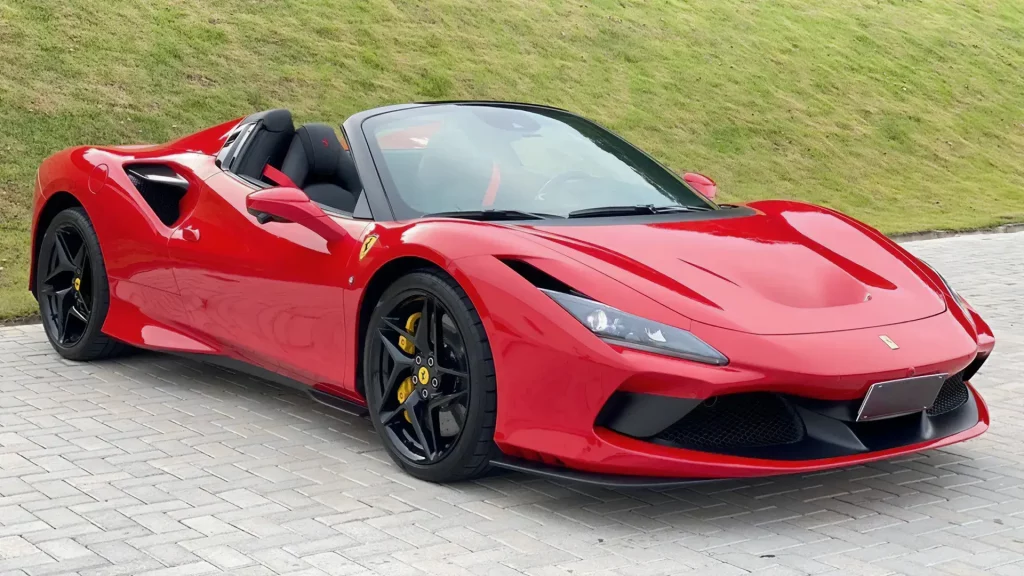A Lamborghini Urus worth almost R$4 million went from social media to police pages in Brazil. The same fate befell its owner, lawyer and digital influencer Deolane Bezerra, 36, with 22 million followers on Instagram.
She is being held in Pernambuco under suspicion of being part of a money laundering scheme involving betting houses. The Civil Police say that the cash payment, R$ 3.85 millionby the Lamborghini Urus S 2023 was the trigger that raised suspicions.
The model, an SUV that goes from zero to 100 km/h in 3.5 seconds, remains seized. If the influencer cannot prove that the money used to purchase the vehicle is of legal origin, the car must be moved to another garage. And this operation would occur through a judicial auction.

At least 60 auctions involving all types of cars take place every day in Brazil, generating a little over R$20 million. The main attraction is, of course, the price, which tends to be lower than that of used car dealerships. And the more expensive the car, the higher the price tag.
50% cheaper
In the case of luxury models, the discount can reach 50% of the value registered in the Fipe table. For a very logical reason: there is less competition. “The buyer of a luxury car gets a slightly better margin. In the lower categories, the competition is fierce, with bids that are close to the market value”, says Antonio Sato Junior, owner of Sato Leilões, a company based in São Caetano do Sul (SP) with more than 6 thousand vehicles on offer.
There are also those who buy at auctions to resell on the market. “It is a transaction that, if done strategically, can become an investment,” says Marcelo Miguel Rodrigues dos Santos, a São Paulo lawyer specializing in vehicle auctions.
To purchase an item in this way, you must complete a registration form at an official auction house (more details here). Note: cars that arrive at auction houses' yards do not always come from judicial sources; they may come from fleet companies or insurance companies, for example.
Cancelled from your purchase? Companies can charge a hefty fee of 10% to 20% of the bid value.
Ferrari in the garage
A Ferrari tops the list of most valuable cars auctioned in 2024 by Copart, a multinational online vehicle auction company. It was an F8 Spider, sold for R$2.7 million, 60% below the amount recorded in the Fipe table (R$4 million) for the 2021/2022 model.
The Italian convertible, equipped with a 720 horsepower V8 engine, belonged to an insurance company and had suffered moderate damage (damage to the structure or mechanical components) caused by a collision. Vehicles in this condition can only be returned to the streets if they are recovered.

Adiel Avelar, president of Copart in Brazil, says that the liquidity of luxury cars at auction is high. “Customers in this segment are already well informed about how the operation works,” he says.
There is no shortage of traps
Auctions have a specific start and end date. Closing a deal requires research and strategy to avoid falling into traps, says Antonio Sato Júnior, from Sato Leilões. You need to search for lots and pay attention to the auction houses' advertising channels.
The next step is to carry out an inspection, preferably accompanied by a mechanic, to check the actual condition of the vehicle.
There is no test drive, but you can inspect everything. “That’s why photos and videos of the car are no substitute for an in-person visit,” says lawyer Marcelo Miguel.
Before bidding online, it is essential to check whether the company is reputable. As soon as the modality started operating on the internet, the number of fake auction sites also grew, as expected. “I have over 100 cases of victims in the office who fell for scams with cloned sites,” says lawyer Marcelo Miguel.
The recommendation is to never make a purchase via social media, WhatsApp, Telegram… “An auction broadcast online already provides a seal of security. But check the company’s CNPJ and look for complaints against it on websites like ReclameAqui,” says the lawyer. Incidentally, bids of particularly high amounts are monitored by Coaf (Financial Activities Control Council) to prevent illicit activities, such as money laundering.
